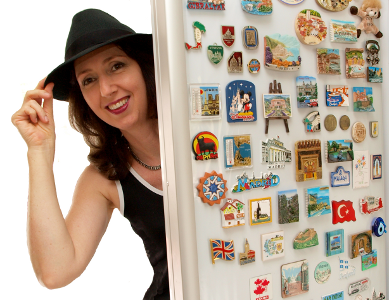While working on a luxury private yacht in the Mediterranean, I took advantage of a rare afternoon off to explore the popular Italian island - Isle of Capri. We were moored on the island at the main port – Marina Grande – and I wanted to see the town of Capri, which is located on the top of the mountain.
The most popular way to get up to the town is by funicular railway. The trip only takes about 5 minutes, and offers breathtaking views of the island’s valleys, sheer cliffs, blue bays with hidden beaches, and the distant Gulf of Naples on the horizon.
The railway is hugely popular with tourists, and on the day I was there, the line of people waiting to board was very long. I knew I didn’t have much time, and I didn’t want to wait in the queue, so I decided to climb the many, many steps up to the top. Naturally, my trip took far longer than the five-minute funicular ride, and in the end, I was actually running in order to get to the top in time to look around before I had to return to work.
Had I known beforehand just how steep and long the climb was going to be, I would more than likely not have even started. But the joy was that I didn’t know, so I just did it, and was rewarded with a huge sense of achievement - not to mention a much more leisurely appreciation of the magnificent scenery and views than if I had taken the train!
The life lesson here is that no matter how daunting a task or challenge may seem, you’re not going to get anywhere if you give up before you’ve started. The simple act of starting something is your first step up that hill. And even if you do know how tiring the journey is going to be, start anyway – and keep going. The view from the top will be worth it.

 To know my fridge is to know me!
To know my fridge is to know me!
















































































